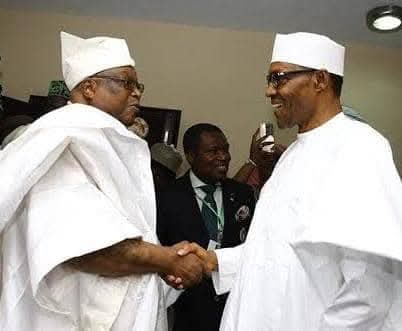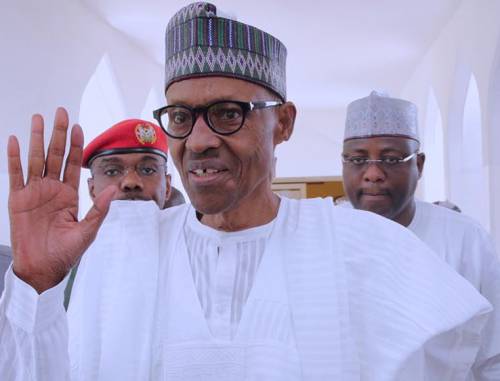The Senate Wednesday at plenary passed a bill seeking the establishment of an electoral offences commission for Second Reading.
The bill sponsored by Senator Kyari Abubakar Shaib (APC, Borno North) and titled “a Bill to establish the National Electoral Offences Commission and for Related Matters, 2020 (SB. 220) received massive support from the senators who took time to marshal out points in support of the bill.
In his lead debate, Senator Abubakar Shaib said that the commission was very imperative to divest the Independent National Electoral Commission (INEC) of the “burden” of prosecuting electoral offenders in Nigeria so that the commission will focus on its core constitutional mandate of conducting elections.
Abubakar enumerated the various problems and debilitating outcomes of electoral malpractices to include “low quality leadership,” citizens “political apathy,” “instability and national insecurity,” disintegration of “national cohesion” among many other ills called on his colleagues to support the bills and write the name of the 9th National Assembly with gold on Nigeria’s history.
He said:
“Electoral crimes lead to low quality, corrupt and violent political leadership. Electoral crimes help election riggers and offenders take control of government against the democratic will of the electorate.
“Electoral offences give birth to political apathy, that forces the electorate to incrementally disengage in political process.
“Electoral offences…precipitates vicious cycle of political instability and national insecurity, electoral corruption leads to avoidable waste of public resources and threatens National Development.
“Civil disturbances and violence resulting from manipulated elections [put an] end to otherwise harmonious communal relations among communities with adverse effect on national cohesion, peace and security.
Speaking further, Abubakar revealed that several other countries across the world had enacted similar laws which have in many ways helped to mainstream and strengthen good and credible electoral processes in those countries. Some of the countries referenced include, Malaysia (1954), United Kingdom (1983, 1985, 2000, 2006), Nepal (1990, amended 2007), Canada (2014), and Kenya 2016. He said that going by the example of Malaysia, Nigeria was already “63 years late” but must necessarily tow the same line in the interest of the growth and progress of the country.
Supporting the bill, Senator Surajudeen Ajibola (APC, Osun) said that the bill was timely and “will ensure crime free electoral process” in Nigeria.
Senator Sam Egwu (PDP, Ebonyi North) urged his colleagues to support the bill to save the lives of innocent Nigerians who constantly fall victim to electoral violence during election in Nigeria. Egwu declared that elections in Nigeria was usually “war because it is only [during] that people are killed.” He cited the killing of the PDP woman leader and a journalist in the last governorship elections in Kogi state and Bayelsa states respectively as a classic example of what electoral violence can cause.
While making his contribution on the bill debate, Senator Adamu Aliero (APC, Nassarawa) likened people that perpetrate electoral violence as being “worse than coup plotters.”
On the part of the Senate Leader, Yahaya Abdulahi (APC, Kebbi) electoral offenders are “existential threat to our democracy” and must be punished to save the nation. He called on his colleagues to support the bill.
Meanwhile, the Senate Minority Leader, Enyinnaya Abaribe (PDP, Abia South) while supporting the bill called on the sponsor of the bill to clearly differentiate the specific goal of the bill, to determine if either a “commission or tribunal” was being sought, this according to him was necessary based on the recommendations of the Justice Uwais led electoral reform committee recommendations which was cited as one of the sources of the bill.
Commenting along the line of thought of the Minority Leader, former Deputy Senate President, Ike Ekweremadu (PDP, Enugu West) cautioned the senate on the establishment of a commission noting that “the tendency for the government in power to weaponize” such a commission cannot be waved off easily in a country like Nigeria where politicians in power do everything to sustain their hold on power.
Ekweremadu, therefore recommended that in line with the Justice Uwais committee report, the bill should rather seek to establish an “electoral offences tribunal” that can be empowered to give commensurate punishment for offenders.
Senator George Thomson Sekibo (PDP, Rivers) in his contribution harped on the need for the bill to be assented to when it is eventually passed into law by the National Assembly.
While ruling on the bill, the President of the Senate, Dr. Ahmad Lawan described democracy as “still the best” and most preferred system of governance and therefore should be supported by ensuring that the bill was passed to further strengthen the democratic culture and governance in Nigeria.
After the overwhelming support the bill garnered, it was unanimously passed and was subsequently referred to the Senate Committee on INEC which was mandated to report back to the Senate in within four weeks for further legislative action.





